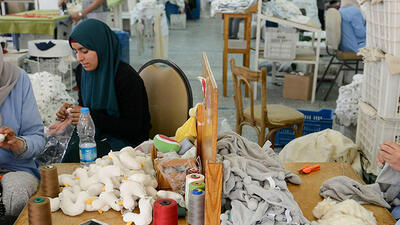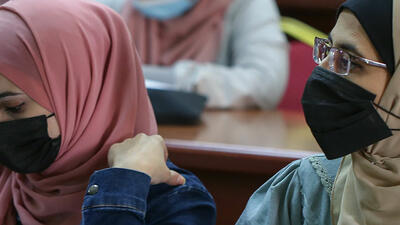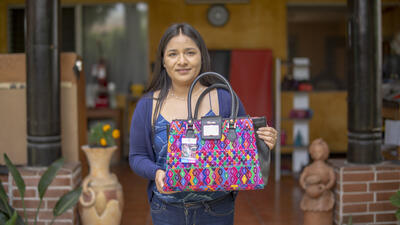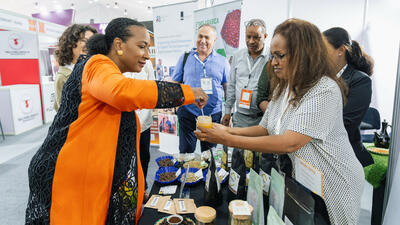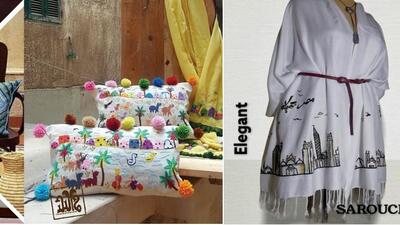
Exporting Egyptian handicrafts to global markets
ITC workshop provides analysis of global market trends for handicrafts, offering recommendations for Egyptian women-owned small businesses.
The handicraft sector has enormous potential. The global handicrafts market size reached $500 billion in 2020 and is expected to grow by 20% in 2024, according to the International Trade Centre (ITC).
Therefore, with the Ministry of Trade and Industry of Egypt, and the Export Development Authority, ITC organized a three-day training on ‘Design for Global Markets’ for women-owned small businesses in Egypt. The National Council for Women co-organized the workshop at its headquarters in Cairo.
Egypt has a rich historical, social and cultural heritage that is reflected in its strong handicrafts’ legacy. Women play a large role in this sector, making pottery and ceramics, carpets and basketry, as well as candles and soaps.
Handicrafts require low capital investments, offer employment opportunities, especially for youth, women and rural populations, and have lower energy requirements, unlike machine-made products. In addition, handicraft items are perceived as symbols of tradition and cultural heritage.
Humanizing handcrafted products
The workshop, delivered with support from the Islamic Development Bank and the International Islamic Trade Finance Corporation (ITFC), helped each company develop a marketing and communication strategy for their strongest product taking into consideration global trends and buyers’ expectations.
“We benefited from valuable advice that gave us a clear vision of what we can do in the near future when we design for export and global markets”, added jewellery designer Shafiaa El Wakil.
E-commerce can bolster the craft sector
In recent years, with the proliferation of various e-commerce channels, the improved accessibility to handicraft products from developing countries has boosted sales in this sector.
“The Post-COVID-19 world has evolved into a digital era,” explains Mehdi Chaker, SheTrades Egypt manager at the International Trade Centre. “ITC’s SheTrades Egypt programme helps women artisans connect with this new digital reality. We are filling the gap of digital literacy.”
The workshop offered hands-on advice for companies to enter markets through digital platforms.
“We now know about digital markets dynamics, changes and requirements the in handicraft sector. It was very important to become digital experts, especially after the COVID-19 pandemic, said workshop participant Rasha Abd El Gawad, founder and manager of Saroucha that produces hand-painted fabrics.
A more integrated Africa
Since its launch in January 2021, the African Continental Free Trade Area (AfCFTA) has created the largest free trade area in the world by number of ratifying countries, connecting 1.3 billion people.
The anticipated income growth means an expanding regional consumer market. The middle-class population in Africa is estimated to reach 1.7 billion by 2030.
The workshop participants were encouraged to diversify their products and explore potential opportunities in domestic, regional and continental markets under the AfCFTA.
“We are willing and excited to find explore more markets, and Africa offers new trade and employment opportunities,” said Rehab Mansour, arts and handicraft exhibitions organizer for the MelBalad gallery.
About SheTrades Egypt
The International Trade Centre’s flagship initiative on women and trade, SheTrades, has launched a new chapter in Egypt to empower and boost the competitiveness of women-owned micro, small and medium-sized enterprises (MSMEs) in the handicrafts sector. The project’s overarching objective is women’s economic empowerment as part of the country’s inclusive and sustainable development and economic growth.




